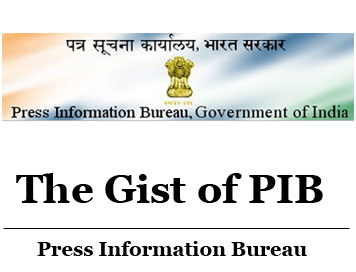(THE GIST OF PIB) Wild Life (Protection) Amendment Bill, 2021

(THE GIST OF PIB) Wild Life (Protection) Amendment Bill, 2021
[AUGUST-2022]
Wild Life (Protection) Amendment Bill, 2021
- The Lok Sabha passed the Wild Life (Protection) Amendment Bill, 2021.
- It seeking to increase the species protected under the Wild Life (Protection) Act, 1972, and implement the Convention on International Trade in Endangered Species of Wild Fauna and Flora, CITES.
- The Bill amends the Wild Life (Protection) Act, 1972. The Act regulates the protection of wild animals, birds and plants.
Key features of the Bill include:
- CITES: CITES is an international agreement between governments to ensure that international trade in specimens of wild animals and plants does not threaten the survival of the species. Under CITES, plant and animal specimens are classified into three categories (Appendices) based on the threat to their extinction.
- Rationalising schedules: Currently, the Act has six schedules for specially protected plants (one), specially protected animals (four), and vermin species (one). Vermin refers to small animals that carry disease and destroy food. The Bill reduces the total number of schedules to four by: (i) reducing the number of schedules for specially protected animals to two (one for greater protection level), (ii) removes the schedule for vermin species, and (iii) inserts a new schedule for specimens listed in the Appendices under CITES (scheduled specimens).
- Obligations under CITES: The Bill provides for the central government to designate a: (i) Management Authority, which grants export or import permits for trade of specimens, and (iii) Scientific Authority, which gives advice on aspects related to impact on the survival of the specimens being traded.
- Invasive alien species: The Bills empowers the central government to regulate or prohibit the import, trade, possession or proliferation of invasive alien species. Invasive alien species refers to plant or animal species which are not native to India and whose introduction may adversely impact wild life or its habitat.
- Control of sanctuaries: The Act entrusts the Chief Wild Life Warden to control, manage and maintain all sanctuaries in a state. The Chief Wild Life Warden is appointed by the state government. The Bill specifies that actions of the Chief Warden must be in accordance with the management plans for the sanctuary.
- Conservation reserves: Under the Act, state governments may declare areas adjacent to national parks and sanctuaries as a conservation reserve, for protecting flora and fauna, and their habitat. The Bill empowers the central government to also notify a conservation reserve.
- Surrender of captive animals: The Bill provides for any person to voluntarily surrender any captive animals or animal products to the Chief Wild Life Warden. No compensation will be paid to the person for surrendering such items. The surrendered items become property of the state government.
- Penalties: The Act prescribes imprisonment terms and fines for violating the provisions of the Act. The Bill increases these fines.
CLICK HERE TO DOWNLOAD FULL PDF
CLICK HERE TO DOWNLOAD UPSC E-BOOKS
Study Material for UPSC General Studies Pre Cum Mains
Get The Gist 1 Year Subscription Online
Click Here to Download More Free Sample Material
<<Go Back To Main Page
Courtesy: PIB


